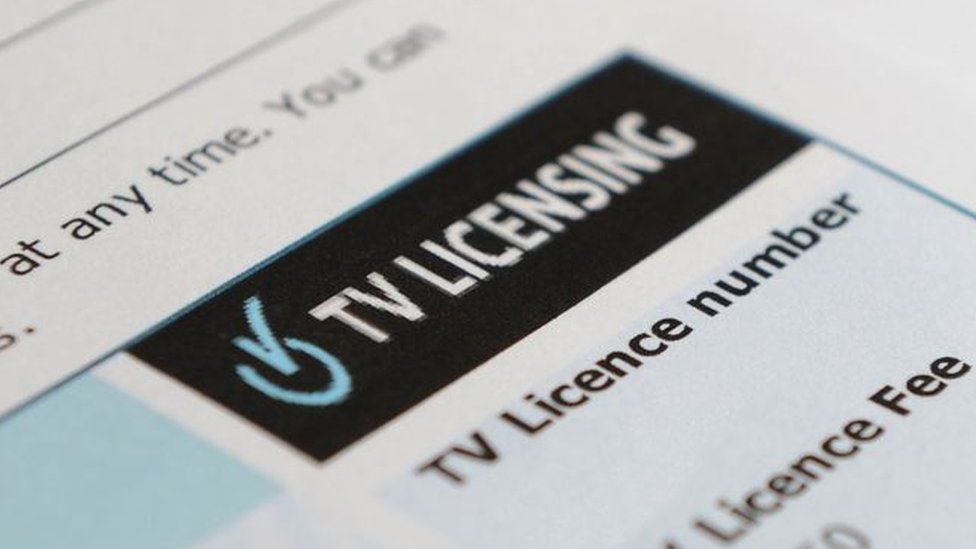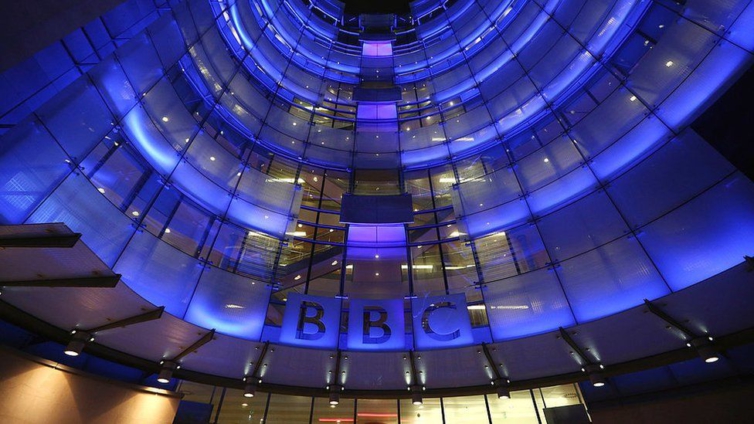The BBC faces "significant" uncertainty over its financial future due to changes in viewing habits, a National Audit Office report has found.
"While the BBC remains the most used media brand in the UK, its share of younger audiences has been under pressure," the spending watchdog said.
"Falling audience share poses a financial risk as people are less likely to pay the licence fee."
The BBC said it had already set out plans for "urgent" reforms.
According to the NAO report, the BBC has seen "a notable drop" in audience viewing while its income from the license fee has also declined.
The BBC "faces considerable uncertainty" about its licence fee income and should produce "a long-term financial plan... as soon as possible", it states.
Such a plan, the report recommends, should "set out the detail for the next stage of its savings, and how it will fund its new strategic priorities".
In 2019-20, the BBC generated total income of £4.94bn, of which £3.52bn was public funding from the licence fee. That was £310m less than the corporation received from the licence fee between 2017-18.

The report also highlighted a 30% decline in BBC TV viewing over the past decade. On average, the amount of time an adult spent watching broadcast BBC television fell from 80 minutes a day in 2010 to 56 minutes in 2019.
And the NAO said the BBC's financial health had been "unexpectedly weakened" by the impact of the coronavirus response.
Last November, the BBC began negotiations with the government about the future funding it will receive from the licence fee. The fee, which is currently £157.50 annually, is due to stay in place until at least 2027, when the BBC's Royal Charter ends.
'Significant savings'
In response, the BBC said it had made "significant savings and increased efficiencies, while maintaining our spending on content, and continuing to be the UK's most-used media organisation".
It added: "We have set out plans for urgent reforms focused on providing great value for all audiences and we will set out further detail on this in the coming months.
"The report also stresses the importance of stable funding for the future, which we welcome as we begin negotiations with government over the licence fee."
The National Union of Journalists said the report's findings "come as no surprise" and that the BBC needs "a financially secure long-term deal that will guarantee its future."
The NAO scrutinizes the finances of government departments and other public sector bodies. Last week Richard Sharp, the BBC's incoming chairman, said the license fee was the "least worst" way of funding the corporation, but it "may be worth reassessing" in the future.
Latest Stories
-
CAF Cup: RS Berkane banned from entering Algeria because of a map of Morocco with its Sahara
5 mins -
The media isn’t doing what is expected of journalism – Sulemana Braimah
19 mins -
Truck driver who caused train accident jailed 6 months
28 mins -
Music review: Okyeame Kwame proves rap dexterity on ‘No Competition’
35 mins -
How a 23-year-old fooled the internet with an AI Kendrick Lamar diss track
56 mins -
No man should be intimidated by the strength of a woman – Charlotte Oduro
58 mins -
Ghana is not immune to terrorist attack – National Security
59 mins -
WAFU B U-17 Championship: Ghana drawn in Group A, face Benin and Cote d’Ivoire
1 hour -
Two hit by stray bullet as Police clash with ‘wee smokers’
2 hours -
Okyeame Kwame aims for another Artiste of the Year win after 15 years
2 hours -
NAGRAT gives government one-week ultimatum to redeem unpaid pensions for 700,000 workers
2 hours -
Deloitte launches Technology, Media and Telecom predictions for 2024
2 hours -
Meta AI expands to Ghana, Nigeria and other countries in Africa; adds new features
2 hours -
GPL: Expect a new Kotoko against Samartex – Ogum tells fans
3 hours -
Court orders service of notice for DNA test to Mohbad’s wife
3 hours

